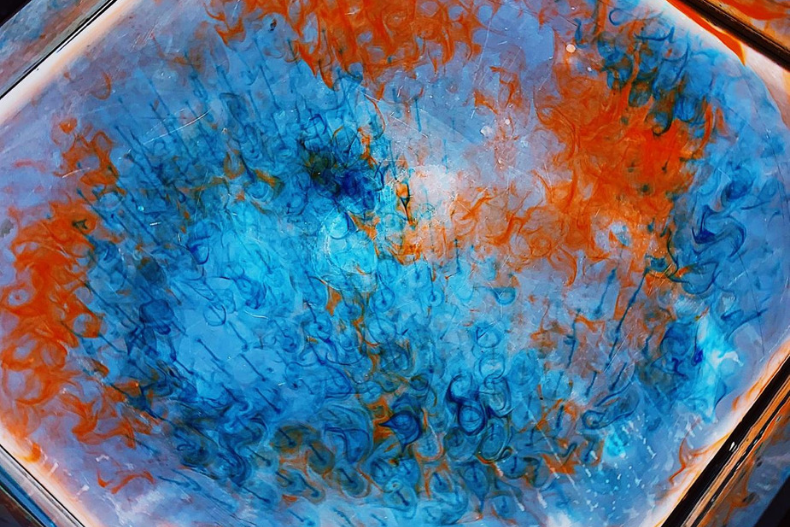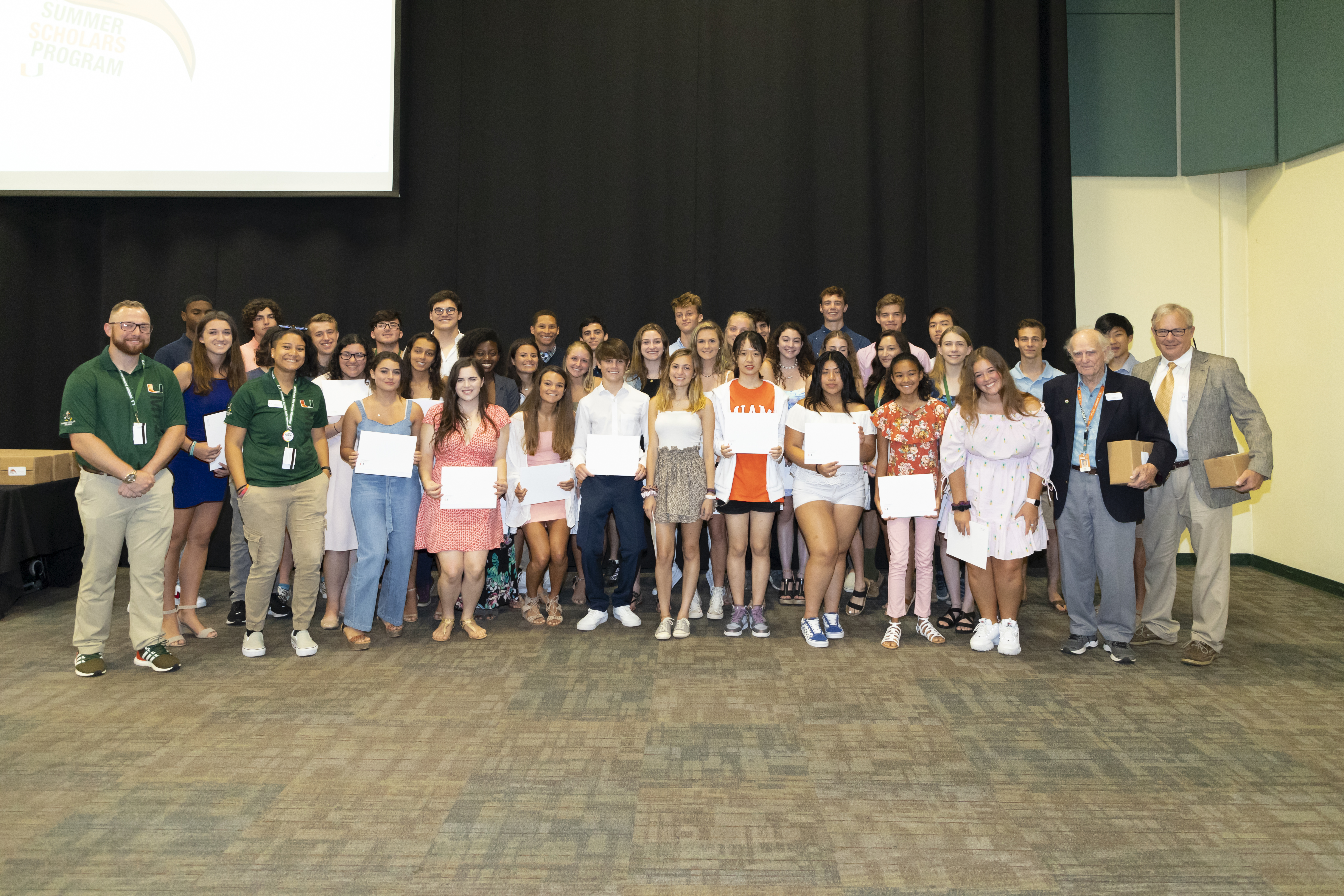Week 1
Hi! I’m Madison Zimmermann, and I am a rising senior at Peddie School in New Jersey. I am spending July 6 - 26th at the University of Miami in a college credit immersive course called Tropical Marine Biology. This course is a mixture of college lectures, lab work, and field study around Miami. I gained my interest for marine biology through snorkelling and diving trips with my family, and I wanted to further explore the concept beyond my limited recognition of a few marine species. The University of Miami had one of the most popular marine biology programs in the country, even appearing on Shark Week. Their Summer Scholars Program was mentioned on my campus tour, and I decided to apply. Now my daily schedule is as follows:
8:20 a.m. - 11:30 a.m. Tropical Marine Biology lectures
11:30 a.m. - 1:00 p.m. Lunch
1:00 p.m. - 4:00 p.m. Lab work
My lectures this week consisted of topics like coral reef ecology, introduction to oceanography, the microbial world, and marine birds, reptiles, and mammals. My labs this week consisted of cartography, salinity and density, invertebrate identification, plankton identification, and observation of deep sea microfossils. This week we had the privilege of experiencing shark research field study with a shark tagging trip in Miami. My team of five was tasked with measuring the shark, clipping a small piece of the fin, pouring water on the shark to keep it cool, and finally, tagging the shark with a “spaghetti” tag. The researchers then took blood and muscle samples of the shark to learn about its eating habits and environment.

Week 2
Week two of the marine biology program included lectures on mangroves, invertebrates, biology of fish, introduction to marine ecology, seagrass bed community ecology, and primary producers. This week in particular was more focused on field study. On Monday, we walked through mangroves in the Key Biscayne Nature Center, and studied their adaptations for respiration. On Tuesday, we went to Key Biscayne again to take quadrat samplings of seagrass, and to seine for observation of different fish species in the area. On Thursday and Friday we travelled overnight to MarineLab: Marine Resources Development Foundation in Key Largo. On Thursday, we went snorkelling in “Grecian Rocks” and “Dry Rocks,” two renowned snorkel spots according to the locals. We got the chance to observe the different species of coral and fish that we had studied in our lectures, even getting to see two sharks. On Friday, we learned about the anatomy of dolphins, and observed them by swimming with them at Dolphins Plus, a training and rehabilitation center.
I am thoroughly enjoying the program so far. I particularly like the hands-on field study, and getting to see the organisms that we have been tested on in classes. My class has people from all over the world including places like Turkey, Greece, and Russia. The girls living on my floor are from Arizona, Maine, New Hampshire, Colorado, Illinois, Mexico, California, Virginia, Maryland, Texas, Connecticut, New York, and even a few people from New Jersey. It is interesting to learn about their different backgrounds, in addition to the topics within marine biology that I am learning in classes.
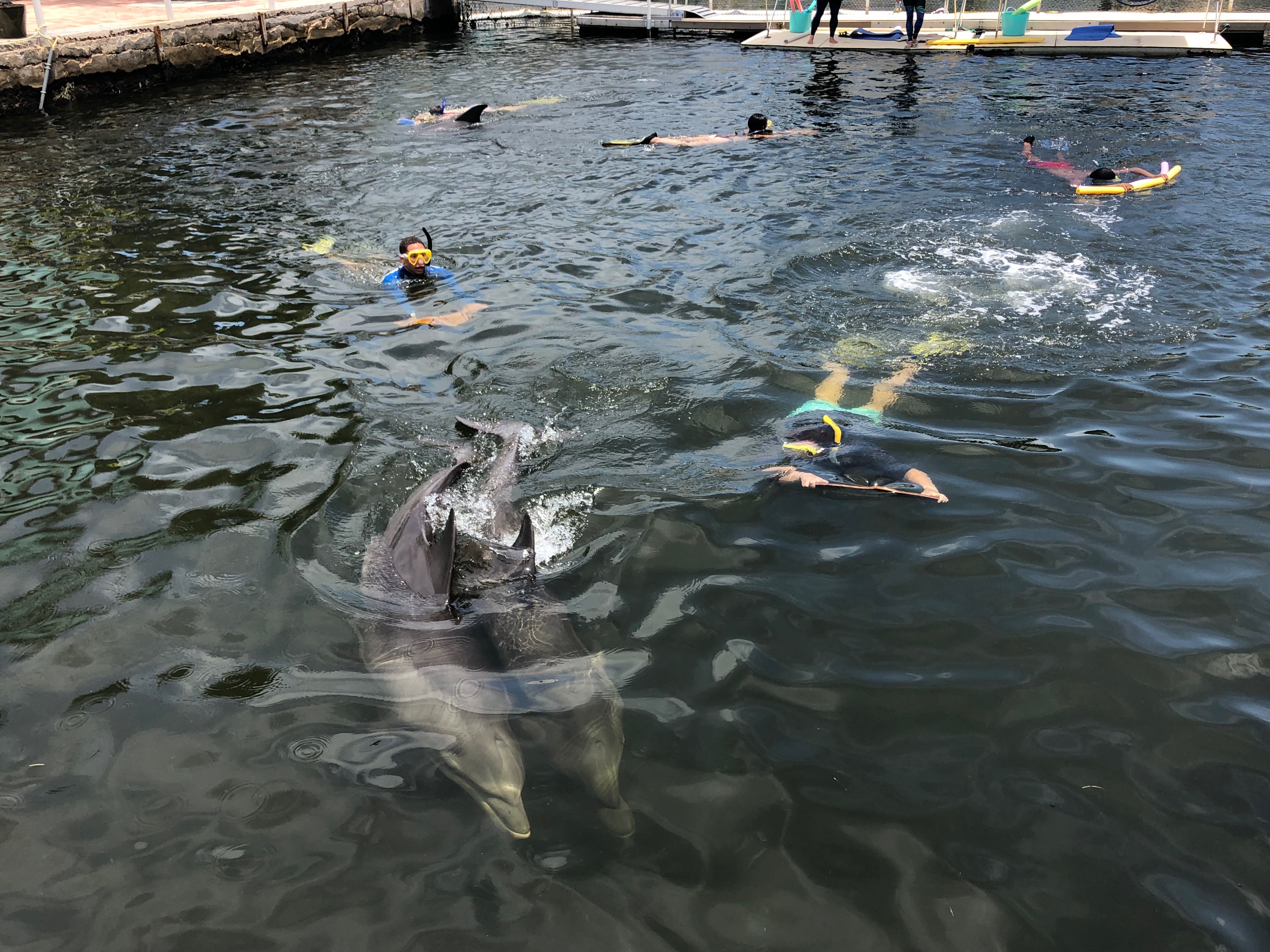
Week 3
Week three of my Tropical Marine Biology course at UM consisted of lectures on climate change, symbiosis, surveying marine ecosystems, and life near the surface. On Tuesday, we visited RSMAS (Rosenstiel School of Marine and Atmospheric Science). We took a tour of the aquaculture tanks, and got a chance to see coral restoration. RSMAS biologists search for factors that affect coral growth and survivorship in local and regional stressors, as well as the effect of climate change on coral at this institute.
This experience has definitely made me more curious about marine life, and how climate change and our actions affect coral ecosystem diversity in particular. I got an inside look at being a college student and a marine biologist during the past three weeks, which has helped me to think about my major, what I’m looking for as far as a college campus, and my future career.
View more pictures from my time in the #UMiamiSSP
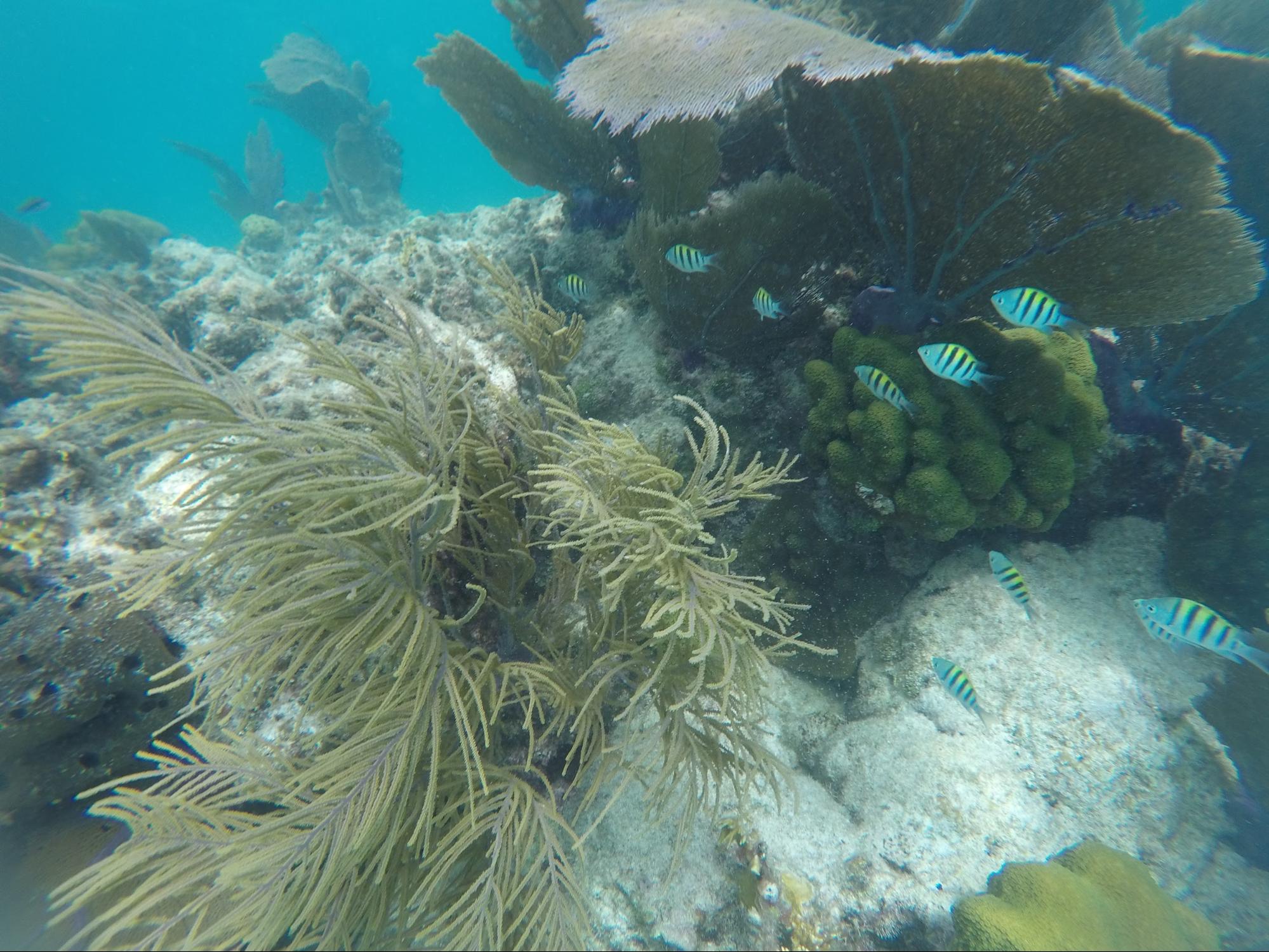
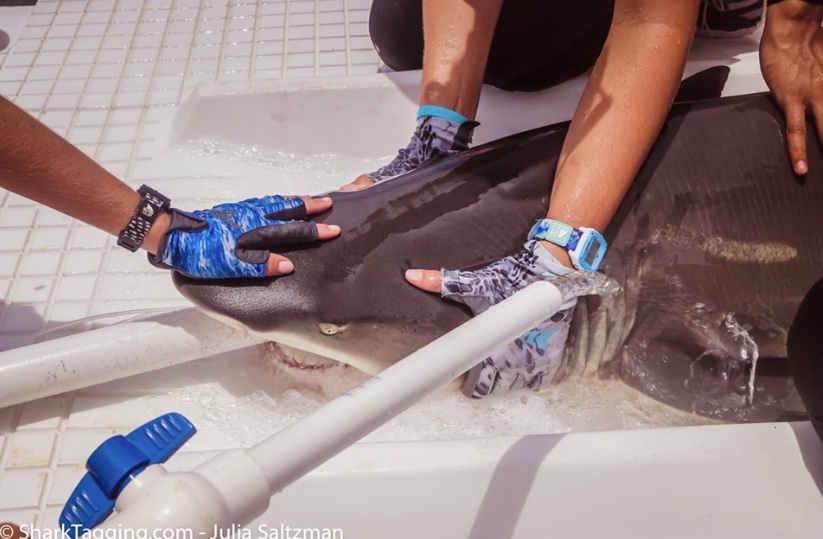
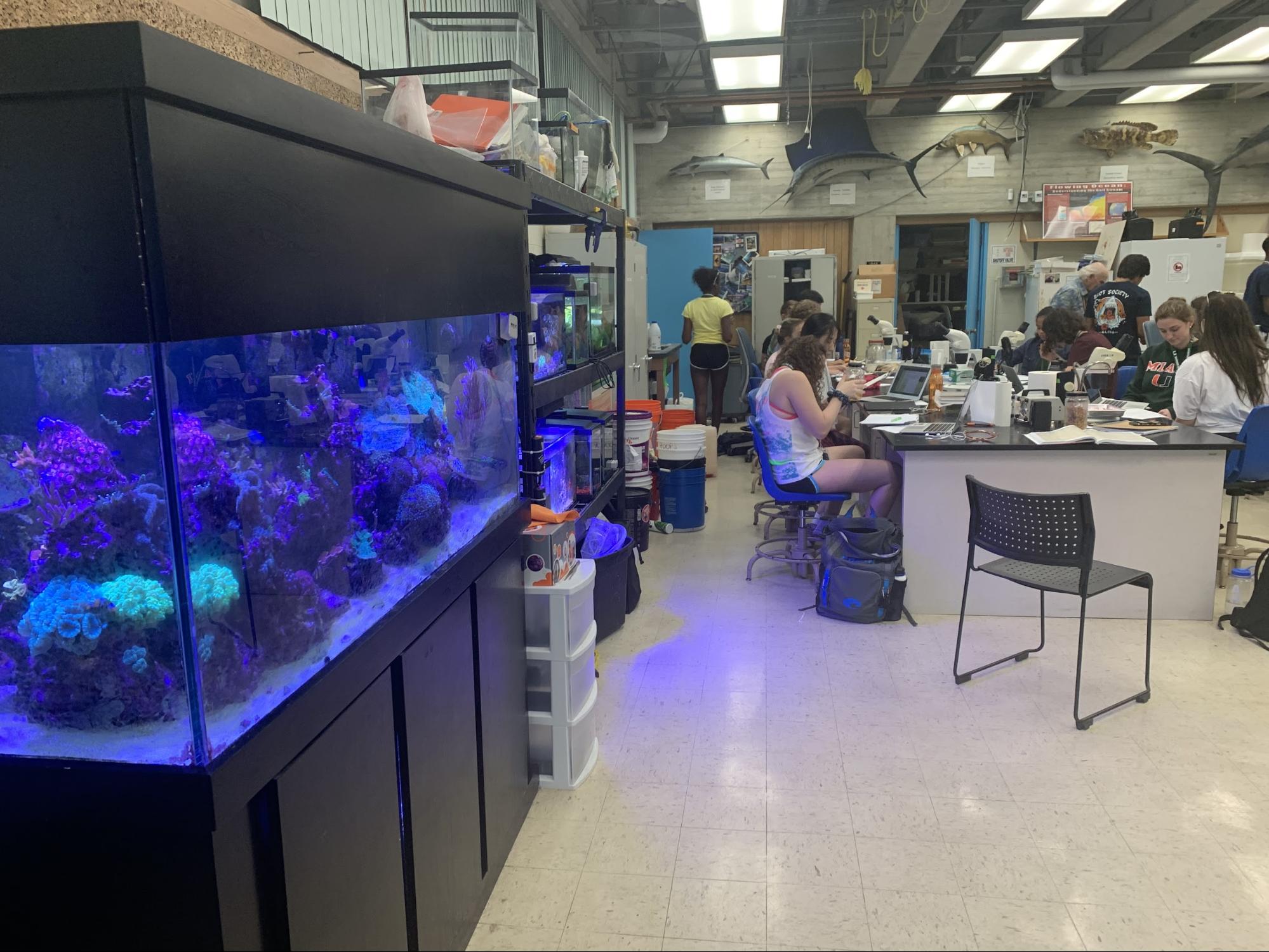
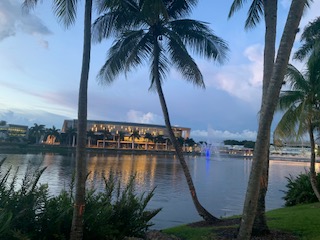
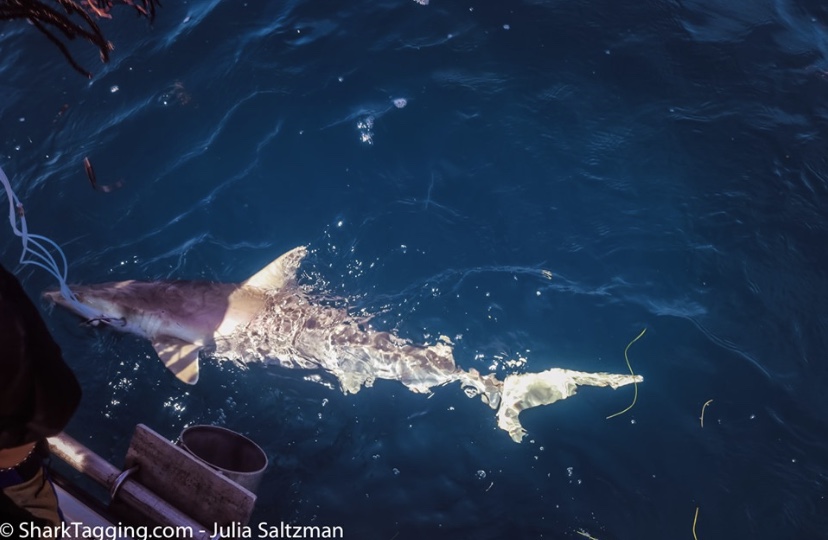
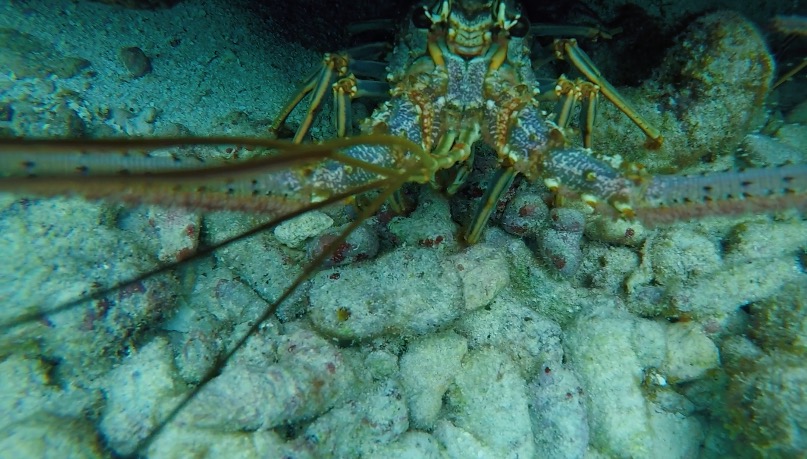
About the University of Miami Division of Continuing and International Education
The Division of Continuing and International Education at the University of Miami aims to empower people to reach their full potential through lifelong and lifewide learning. With more than 70 credit and non-credit programs, the Division focuses on creating continuous learning experiences that transform individuals, organizations, and entire communities. For more information, please visit dcie.miami.edu or call (305) 284-4000 and connect with us on Facebook and Twitter.
